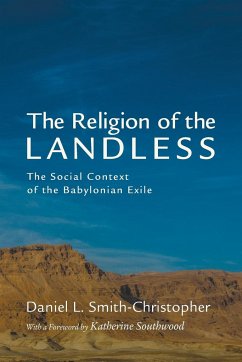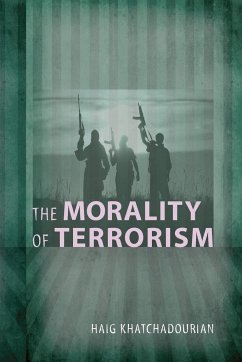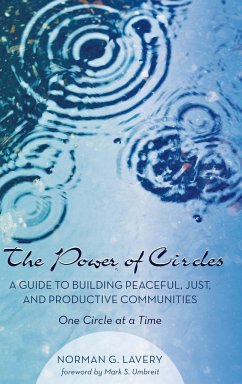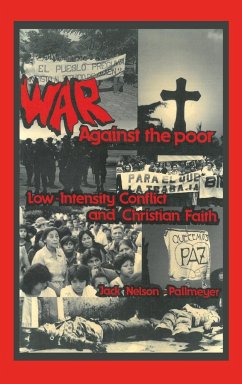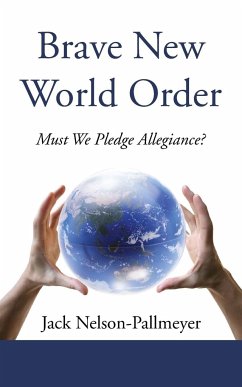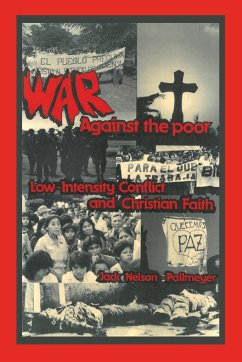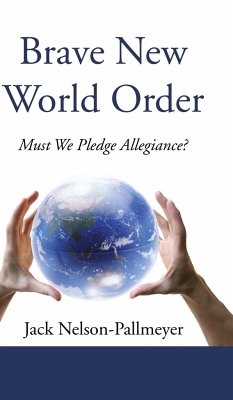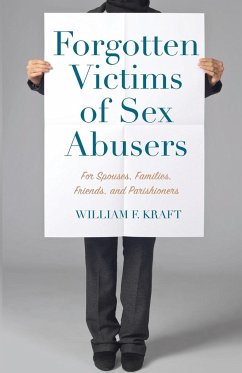Nicht lieferbar
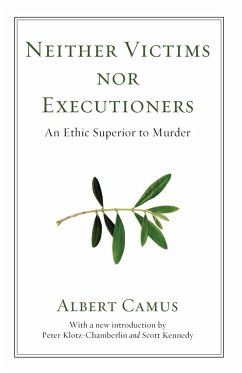
Neither Victims nor Executioners
Versandkostenfrei!
Nicht lieferbar
Endorsements: "The reissue of Camus' seminal essay, 'Neither Victims nor Executioners,' could hardly be more timely. In Iraq and Afghanistan, the hideous march to oblivion goes on apace. America is ironically reversing the ethic proposed by Camus' title. American adventuring, playing the part of omnipotent executioner, is creating multitudes of victims. No search is undertaken for a 'third way.' Indeed, were the Camus thesis proposed, it would evoke only wide-eyed innocent arrogance. Kennedy and Klotz-Chamberlin have dedicated a lifetime to the 'third way' commended by Camus. Our gratitude to ...
Endorsements: "The reissue of Camus' seminal essay, 'Neither Victims nor Executioners,' could hardly be more timely. In Iraq and Afghanistan, the hideous march to oblivion goes on apace. America is ironically reversing the ethic proposed by Camus' title. American adventuring, playing the part of omnipotent executioner, is creating multitudes of victims. No search is undertaken for a 'third way.' Indeed, were the Camus thesis proposed, it would evoke only wide-eyed innocent arrogance. Kennedy and Klotz-Chamberlin have dedicated a lifetime to the 'third way' commended by Camus. Our gratitude to our mentors for a prescient, timely introduction." --Fr. Daniel Berrigan, SJ "Pacifists are not looking for a Utopian outlook nor unrealistic expectations. Many said, 'South Africa will not change.' But it did. Others looked at Northern Ireland and, it took years, but it also changed. The Soviet Union changed. The Middle East will change but not through violence or murder. We still think of ourselves within borders, protecting ourselves from others, Europe took its borders away and they are better. South, Central, and North America should take away their borders, as well as people in the Middle East. . . . We should build a culture of nonviolence through an understanding of human rights without regard to race, religion, and nationality." --Mubarak Awad, founder of Nonviolence International "If we spontaneously approve of nuclear terrorism, if we become apologists for the uninhibited use of naked power, we are thinking like Communists, we are behaving like Nazis, and we are well on the way to becoming either one or the other. In that event we had better face the fact that we are destroying our own Christian heritage." --Thomas Merton Author Biography: Albert Camus (November 7, 1913 - January 4, 1960) was a French author and philosopher and one of the principal luminaries (with Jean-Paul Sartre) of existentialism. He was awarded the Nobel Prize for Literature in 1957.






